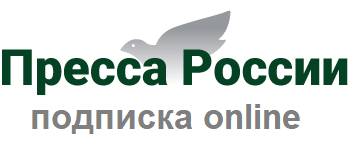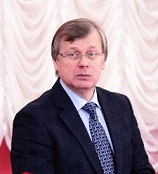Contents
OUR SPIRITUAL VALUES
S.Y.KUNYAEV —
“Everything we have, came from Pushkin…” (F.M.Dostoevsky)
V.M.EISIPOV —
Raphael or Perugino?
About A.S.Pushkin’s “Madonna”
I.P.ZOLOTUSSKY —
“I am a man, your Excellency”.
Commentary on “The Adventures of Chichikov”.
Death, Peace and Immortality
L.S.YAIZERMAN —
Why does Leo Tolstoy leave the school?
On the history of the jubilee century
SEARCH. EXPERIENCE. SKILLS
I.А.SCHEGOLEVA —
In the search of the soul. N.V.Gogol’s “Dead Souls”: experience of intertextual analysis.
Part 5
A.A.TIMAKOVA —
Category of the epic in the works of L.N.Tolstoy and M.A.Sholokhov: issues of comparative characteristics
G.V.PRANTSOVA —
Types of written assignments for teaching how to write an argumentative essay
O.N.LEVUSHKINA, I.I.SHELYAPINA —
“The heart is trembling with joy by Christ’s Resurrection!”
Lesson of the speech development. How to write congratulations for the spring holiday.
VIIIth Grade
T.G.SOLOVEY —
Creation of the book-trailer for increasing students interest in reading
V.KRIVOSHEEV —
Mikhailovskoe in Pushkin’s life and work
Abstracts and keywords
OUR SPIRITUAL VALUES
S.Y.KUNYAEV —
“Everything we have, came from Pushkin…” (F.M.Dostoevsky)
Abstract. S.Kunyaev’s work shows the unity of historical and cultural context in which the Golden and Silver Ages of Russian culture interacts.
Keywords: panorama of art, tragic contradictions, spiritual feats and moral falls, completeness of Russian history and literature of XIX—XXth centuries.
V.M.EISIPOV —
Raphael or Perugino?
About A.S.Pushkin’s “Madonna”
Abstract. Pushkin doesn’t mention in his sonnet “Madonna” what particular painting he was dreaming of. In Soviet times, it was considered that it was the so-called “Bridgewater Madonna”by Raphael (it was based on the article of one of the leading Pushkinists of the time M.A.Tsiavlovsky). However, the “Bridgewater Madonna” doesn’t match the description in the poem. Could it be Perugino, another great Italian artist? Comparing the description, the author concludes that it was Perugino’s painting that inspired Pushkin.
Keywords: Pushkin, “Madonna”, Savior, palm, Raphael, Tsiavlovsky, Koka, Smirnova-Rosset, Belyaev, Perugino.
I.P.ZOLOTUSSKY —
“I am a man, your Excellency”.
Commentary on “The Adventures of Chichikov”.
Death, Peace and Immortality
Abstract. “Our land is dying because of us”, says one of Gogol’s characters. The article shows that making Chichikov feel “the pain of the heart”, Gogol believes in his revival and the ability to change his life.
Keywords: peace, death, mortal, soul, laughter, pity, “unquenchable pain of the heart”, “cuddle up to God”, great poem.
L.S.YAIZERMAN —
Why does Leo Tolstoy leave the school?
On the history of the jubilee century
Abstract. Smart and sad thoughts on whether it is possible to return L.N.Tolstoy back to the school program, give a compre-hensive picture of what happened to our literary education and our students during the years of school reforms.
Keywords: L.Tolstoy, “War and Peace”, “Russian cultured person can not live without knowing Andrei Bolkonsky, Pierre Bezukhov, Natasha Rostova”, “the planet “War and Peace” began to distance itself from us”.
SEARCH. EXPERIENCE. SKILLS
I.А.SCHEGOLEVA —
In the search of the soul. N.V.Gogol’s “Dead Souls”: experience of intertextual analysis.
Part 5
Abstract. The article shows how to expand the theoretical and literary knowledge about the N.V.Gogol’s poem “Dead Souls” by understanding the various types of intertext: mythological, biblical, Dante-ish, Hoffmann-ish, etc. and how to apply effective pedagogical methods that develop the skills of parallel reading of the works of art which help to reflect on its artistic originality.
Keywords: “dead” and “living” souls, satire, elements of folk laughter culture, travesty, grotesque, hyperbole, comparison, synecdoche, gradation, realism.
A.A.TIMAKOVA —
Category of the epic in the works of L.N.Tolstoy and M.A.Sholokhov: issues of comparative characteristics
Abstract. The article compares the manifestations of the epic category in “War and Peace” by L.N.Tolstoy and the “And Quiet Flows the Don” by M.A.Sholokhov. The author designs a system of tasks in order to help 11th Graders to understand the peculiarity of the “epic category” in the work of M.A.Sholokhov and the reasons for its difference from the “pure” model of the epic genre — “War and Peace” by L.N.Tolstoy.
Keywords: category of epic, signs of epic, traditions of genre, author’s position, manner of narration, novel tendency.
G.V.PRANTSOVA —
Types of written assignments for teaching how to write an argumentative essay
Abstract. The author offers various types of written assignments that contribute to the high school students’ skills to carry out the argument. Learning to reason is based on block diagrams.
Keywords: final essay, essay-reasoning, reasoned text, block diagram.
O.N.LEVUSHKINA, I.I.SHELYAPINA —
“The heart is trembling with joy by Christ’s Resurrection!”
Lesson of the speech development. How to write congratulations for the spring holiday.
VIIIth Grade
Abstract. This lesson is aimed at forming students’ abilities to create congratulations text addressing the subject of congratu-lations. The lesson has a bright cultural orientation. Students analyze the texts of letters N.V.Gogol, A.P.Chekhov, cultural texts and poems; and learn how to create your own congratulations texts relying on algorithms and language formulas.
Keywords: teaching to write congratulations, multidimensional text analysis, text description, the role of references in the text.
T.G.SOLOVEY —
Creation of the book-trailer for increasing students interest in reading
Abstract. This material provides a detailed methodology for creating a book-trailer in order to cause students interest in reading.
Keywords: book-trailer, reading, interest, creative activity, skills, book.
V.KRIVOSHEEV —
Mikhailovskoe in Pushkin’s life and work
Abstract. The author tells about Pushkin’s trip to Mikhailovskoye and about the beneficial influence of such pilgrimage on our spiritual world.
Keywords: Mikhailovskoye, Pushkinsky reserve, exile, place of work and inspiration, fruitful years, spirit of the Pushkin’s house, Svyatogorsky monastery.









